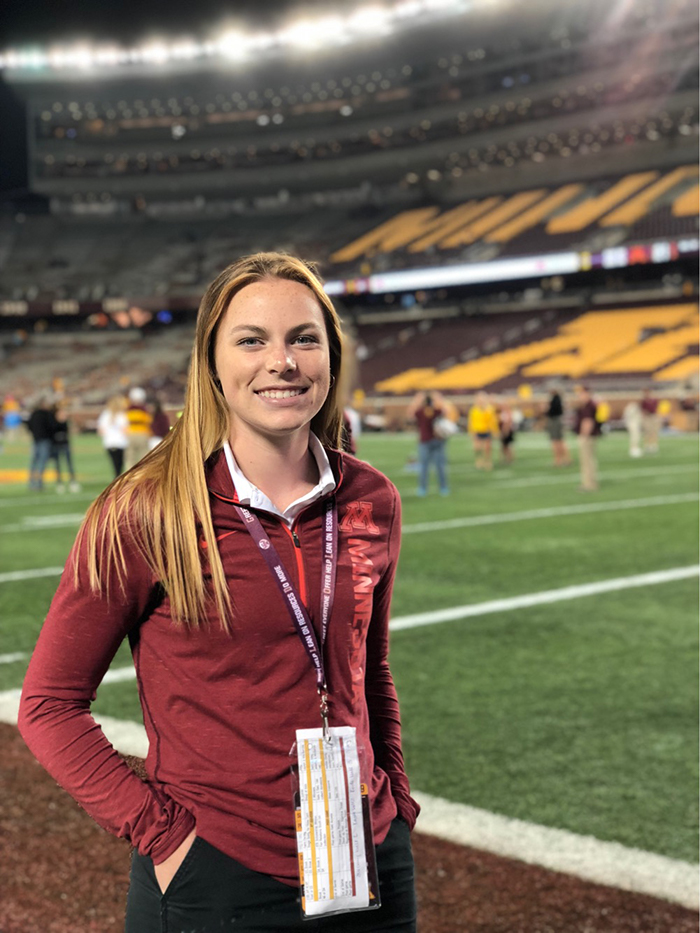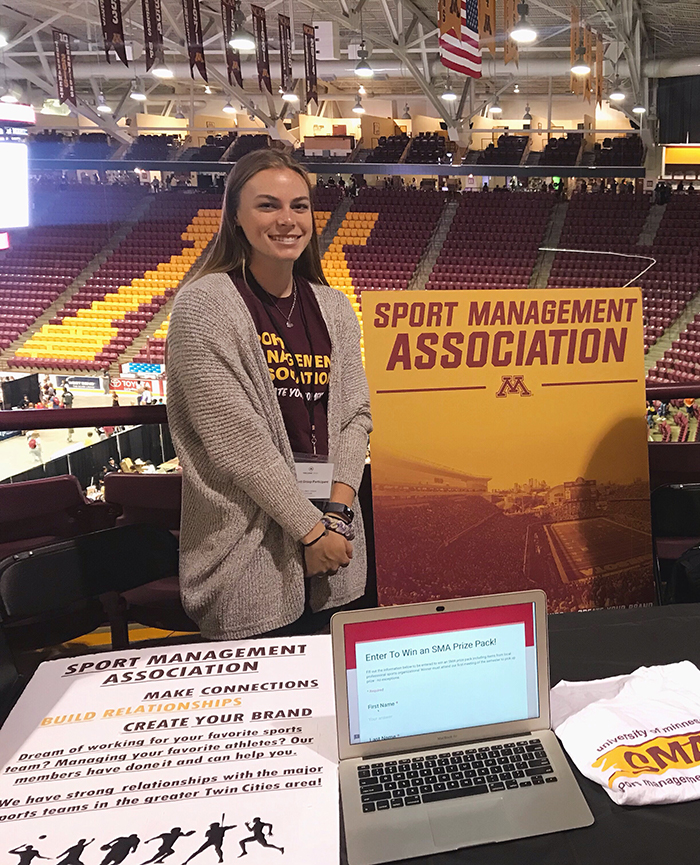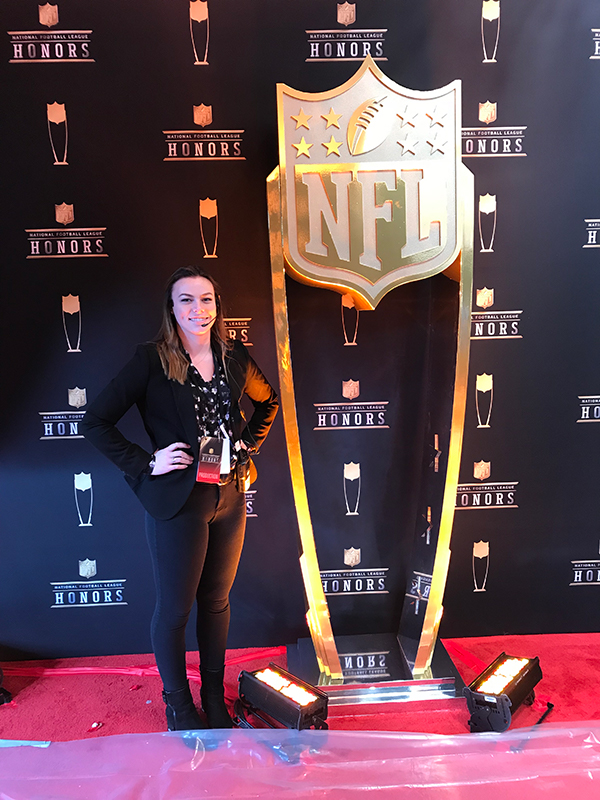What happens to School of Kinesiology students after they leave Cooke Hall? We recently spoke to Maggie Vlasaty, a sport management graduate, to hear about her path to sport management and her advice to those pursuing a similar career.
What inspired you to pursue sport management?
Although I had initially intended to major in Kinesiology, I soon realized that my internal desire to work creatively and competitively would not serve well in traditional roles like a physical therapist or athletic trainer. Luckily, my freshman year, two members of the Timberwolves organization came and spoke to one of my introductory courses. Through their talk, I realized that there were other options to pursue my passion for sports and that the business side of things really caught my attention.
What was it like being the president of the Sport Management Association, and how did SMA help influence your career path?
Being in a leadership role taught me very valuable life lessons, both professionally and personally. As president of SMA, I realized that I really enjoyed seeing others succeed, thanks in part to what the leadership team and I could help offer (guest speaker introductions, Q&A opportunities, etc.). I also retained communication skills, the ability to delegate, and a supportive network. I’ll always feel such a strong connection to that student group, even once those who participated with me have long since graduated.
Why do you recommend that students take advantage of career and internship opportunities?
I cannot speak enough on how having early interaction to the sports industry as a working professional helped me develop into who I am today. Career and internship opportunities provide you with everlasting personal connections and give you the chance to build a reputation as a hard worker early on. Taking advantage of these opportunities and grasping them, shows that you are eager to learn and participate in the industry and sets you up for an entry level position or higher after graduation. On a side note, many of your fellow interns in these roles will happen to be your classmates, and it is there you will find yet another opportunity for further relationship-building.
“Career and internship opportunities provide you with everlasting personal connections and give you a chance to build a reputation as a hard worker early on.”
What advice would you give to students looking to pursue a career in sports management?
I sometimes compare the sports industry to an iceberg, with what fans see, a sporting event, as just the tip of that iceberg. Someone pursuing a career in sports management should know that you really need to submerge yourself in anything you find in your path; that will help you build deeper relationships, experience opportunities that go below the surface of what they seem, and eventually make your way to the top of that iceberg. Understanding the industry in totality is the first step to navigating it.
“I sometimes compare the sports industry to an iceberg, with what fans see, a sporting event, as just the tip of that iceberg.”
How has the School of Kinesiology helped prepare you for life after graduation?
The School of Kinesiology and the sport management program specifically, provide a plethora of assets that make it nearly impossible to graduate without experience in your field of choice and an understanding of your options as a professional. Access to student groups, internships and volunteer opportunities, and counselors are just a few things that the school offers. As an alumni, I also receive notices of career development opportunities through seminars, networking events, and more. The School of Kinesiology lets me know where to start if I ever begin to feel lost with my career.






